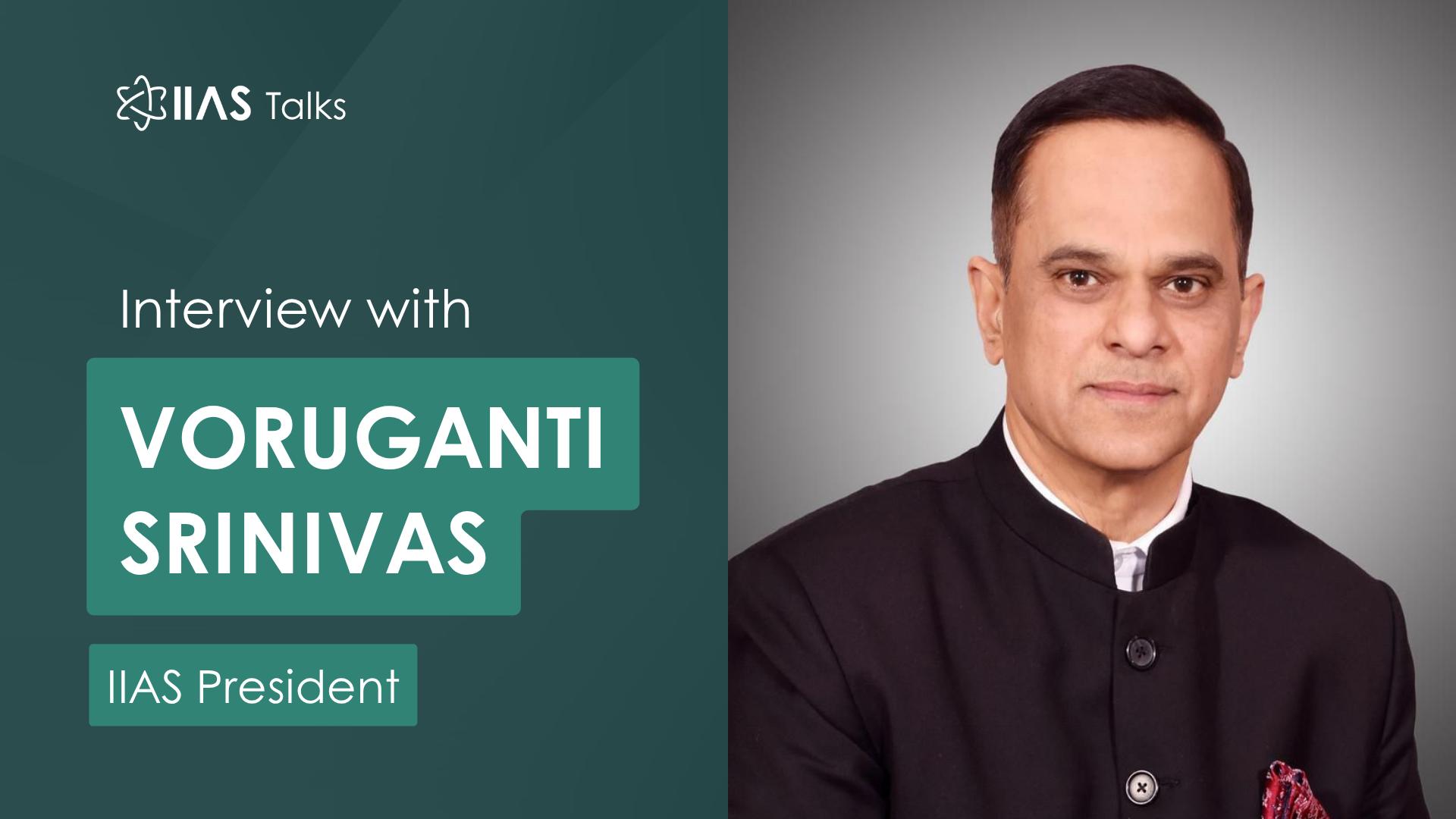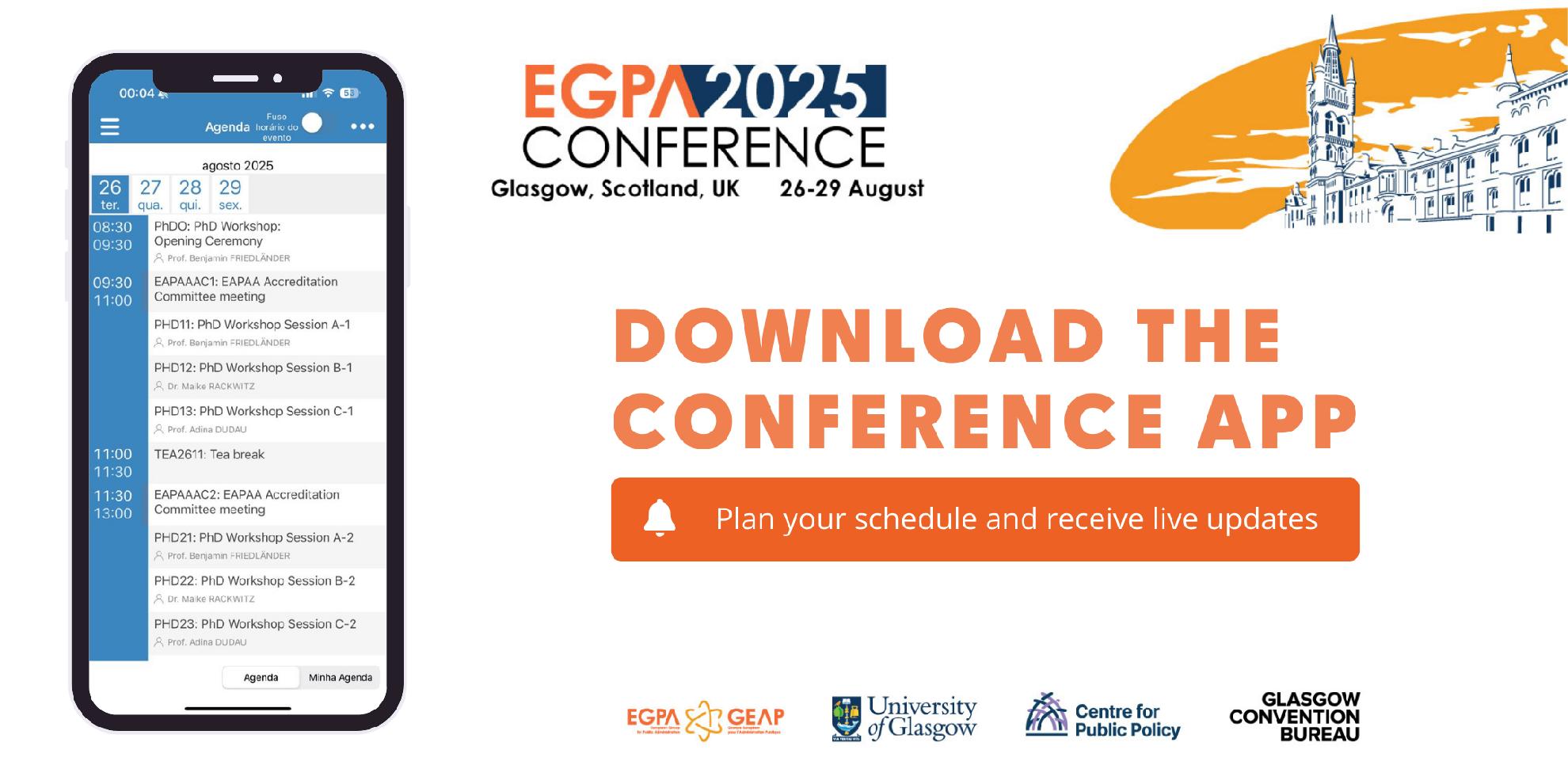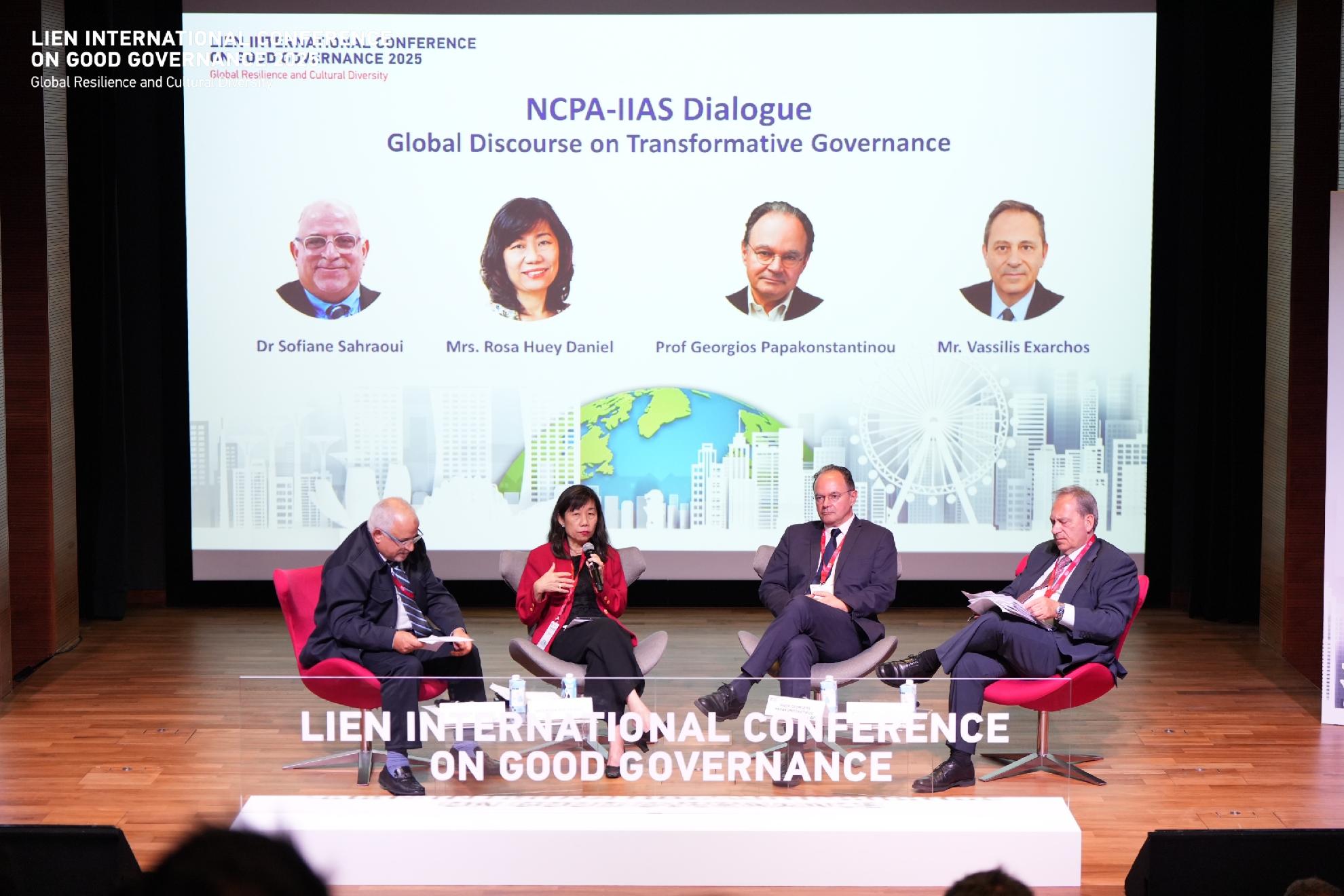The IASIA 2024 Conference, one of the three leading annual conferences of the International Institute of Administrative Sciences (IIAS), was held in Bloemfontein, South Africa, from July 1 to 5, 2024. Organized in close collaboration with the University of the Free State (UFS) and addressing the theme "Alternative Service Delivery and Sustainable Societal Responsiveness", the event brought together global experts to explore cutting-edge solutions for contemporary public governance challenges.
The conference featured a variety of sessions including plenaries, special panels, IASIA Working Group discussions, and a PhD seminar. Notable highlights included opening speeches by Prof. Francis Petersen, Vice-Chancellor of UFS, and Dr. Najat Zarrouk, IASIA President, who emphasized the need for innovation and human-centric approaches in public service. Ra’ed BenShams, IIAS President, and Sofiane Sahraoui, IIAS Director General, both highlighted the importance of ethical leadership and global collaboration amidst current challenges.
Tributes were paid to Professor Allan Rosenbaum for his extensive contributions to governance and education, and discussions on the conference theme were led by rapporteurs Dr. Christa DeWet and Prof. Dr. Liezel Lues, who stressed personalized public service and the integration of technology with human values.
Liza Van Jaasveldt, IASIA Functional Vice President, celebrated the all-female leadership team and innovative panels, while Prof. Dr. Mareve Biljohn highlighted the necessity of rethinking public administration to better address citizens' needs.
The conference not only showcased advancements in public governance but also facilitated meaningful dialogue on enhancing societal responsiveness and sustainable practices.
Opening Ceremony
Prof. Francis Petersen, Vice-Chancellor and Principal of the University of the Free State, opened the event underscoring the urgency for innovative solutions in public service. He cited a quote frequently attributed to Albert Einstein: "We cannot solve our problems with the same thinking we used when we created them," to emphasize the need for fresh approaches to address public sector challenges. Connecting to the conference theme, he added, "to ensure that alternative services deliver progressive benefits, we must embrace innovation and adopt sustainable practices." Prof. Petersen also addressed South Africa's public sector inefficiencies and funding issues and urged collaboration among stakeholders.
“This year, our Conference theme is 'Alternative Service Delivery and Sustainable Societal Responsiveness' resonates deeply with both the Global Agendas 2030 and the Africa Agenda 2063, reflecting our commitment to leaving no one, no place behind and ensuring effective, accountable, inclusive and sustainable governance.” — Dr. Najat Zarrouk
Dr. Najat Zarrouk, IASIA President, officially opened the IASIA 2024 Conference with a warm welcome to attendees and a heartfelt thanks to the University of the Free State for hosting. She highlighted the conference theme emphasizing that "This year, our Conference theme is 'Alternative Service Delivery and Sustainable Societal Responsiveness' resonates deeply with both the Global Agendas 2030 and the Africa Agenda 2063, reflecting our commitment to leaving no one, no place behind and ensuring effective, accountable, inclusive and sustainable governance." Dr. Zarrouk addressed the pressing global challenges, including the COVID-19 pandemic, geopolitical tensions, and climate change, and stressed the growing demands for accountable, human-face public services. She encouraged participants to engage actively in the over 45 sessions and 300 papers submitted, aimed at exploring innovative approaches to governance and service delivery.
“ Human values are nice to have, but unfortunately, we cannot bank on them. ” — Dr. Ra’ed BenShams
Dr. Ra’ed BenShams, IIAS President, reflected on the transformative and challenging global landscape. He drew inspiration from South Africa's historical fight against oppression, highlighting the changing nature of global power dynamics and the current lack of effective leadership. Dr. BenShams posed critical questions about the role of public administration schools in nurturing ethical leaders and emphasized that "human values are nice to have, but unfortunately, we cannot bank on them." He called for proactive initiatives to address corruption and emphasized the need for leadership driven by core ethical values to create a "free world order governed by free public administration."
Dr. Sofiane Sahraoui, IIAS Director General, highlighted the significance of the conference being held in person at the University of the Free State after previous attempts were thwarted by COVID-19. He praised the active participation of South Africa and other global delegates in IASIA, noting that it often represents the second-largest contingent of delegates after China. He emphasized the conference's role in fostering lasting friendships and building a vibrant community.
Dr. Sahraoui acknowledged the hard work of various committees and individuals who contributed to the conference's success and mentioned the challenges faced in a world increasingly characterized by nationalism and radicalism. He underscored the importance of maintaining the spirit of global collaboration despite budget cuts and travel restrictions. "In a world increasingly dominated by nationalism and radicalism, we try to keep the spirit of global amity and influence with teaching, research, and practice of public administration with related values," Sofiane remarked.
“ In a world increasingly dominated by nationalism and radicalism, we try to keep the spirit of global amity and influence with teaching, research, and practice of public administration with related values. ” — Dr. Sofiane Sahraoui
Alternative Service Delivery and Sustainable Societal Responsiveness
Dr. Christa DeWet, part of the team of rapporteurs, emphasized the importance of discussing alternative service delivery in the context of societal responsibilities. She underscored the need to understand the motivations behind our work, particularly in addressing poverty and inequality. DeWet highlighted the conference's role in providing a platform for discussing challenges and opportunities in governance.
She urged participants to consider how public services can become more personalized and proactive, drawing parallels with private sector advancements. Reflecting on the theme of the conference, she stated, “The concepts of alternative service delivery should be embedded in professionalization, proactiveness, and personalization to ensure that public services meet the evolving needs of all citizens.” DeWet also referred to the concept of the "third space" from Rony K. Baba's theory, which advocates for collaborative spaces between opposing forces to achieve constructive progress.
Prof. Dr. Liezel Lues, one of the two rapporteurs, addressed the conference theme of sustainable societal responsiveness, emphasizing the privilege of living in a time of rapid technological advancement and the responsibility it entails. She reflected on historical innovations and their impacts, questioning how we can harness the emerging fifth industrial revolution to enhance synergy between humans and technology.
Lues highlighted the importance of integrating technology and human strengths to foster societal responsiveness. She suggested that focusing on a human-centric approach and sustainable practices is crucial for addressing current and future challenges.
In her speech, she noted, “What if we engage in activities that challenge traditional norms and ensure societal responsiveness in a way that causes minimal environmental damage and endures for the long term?” This quote underscores the conference's theme of balancing technological progress with sustainable and socially responsible practices.
“ What if we engage in activities that challenge traditional norms and ensure societal responsiveness in a way that causes minimal environmental damage and endures for the long term? ” — Prof. Dr. Liezel Lues
Prof. Dr. Liza Van Jaasveldt, IASIA Functional vice president for the program celebrated the hard work of the all-female leadership team behind the conference, emphasizing their role in creating a diverse and engaging program. She highlighted the range of panels and workshops, including discussions on alternative service delivery, municipal governance, and innovative technology such as drones. Van Jaasveldt remarked, “The conference program is truly only possible because of the wonderful support from IASIA members,” showcasing the collaborative effort that made the event a reality. She also encouraged attendees to engage with new initiatives, including kick-off panels on disaster risk reduction and effective governance, urging participants to “ensure you don’t miss our new kick-off panels that could result in new working groups,” to help shape the future of the conference and its themes.
Prof. Dr. Mareve Biljohn addressed the conference with a focus on rethinking public administration to become more citizen-centric and responsive. She posed critical questions about how to better meet the basic needs of citizens and provide alternative services. In her own words: “How can we become more human-centric, more citizen-centric?, provoked Dr. Biljohn.
At the closing ceremony, the audience was also able to hear a special message from Ms. Geraldine Fraser-Moleketi, former Minister of Public Service and Administration of South Africa and Chair of the Committee of Experts on Public Administration (CEPA) at the UN. She reflected on the concept of alternative service delivery, suggesting it addresses shortcomings in traditional governance and service delivery methods. She highlighted the need for effective collaboration across government levels and sectors, especially in resource-limited contexts like South Africa.
Ms. Fraser-Moleketi underscored the importance of initiatives such as the Batho Pele (People’s First Initiative) and Public-Private Partnerships in improving service delivery, and also discussed the principles behind the initiative, which include consultation, setting service standards, increasing access, ensuring courtesy, transparency, redress, and value for money. These principles align with broader sustainable development goals, reinforced Ms. Fraser-Moleketi.
Prof. Dr. Allan Rosenbaum: Celebrating a Legacy of Excellence and Mentorship
During the IASIA 2024 Conference , Dr. Najat Zarrouk delivered a heartfelt tribute to the late Professor Dr. Allan Rosenbaum, who passed away on March 17, 2024. She highlighted his significant contributions to governance, administration, and education, both in the U.S. and globally.
Dr. Rosenbaum served as president of the association, chaired the accreditation commission, and was a member of the UN Committee of Experts on Public Administration. He initiated and reviewed the standards of excellence for training and education in administration with UNDESA.
Known for mentoring multiple generations and producing extensive research, his legacy is profound. Zarrouk announced plans to create an award and a book in his honor, reflecting on his love for life and humor.
Looking Forward
The full scientific report from the conference will be released in the near future, offering comprehensive insights and detailed findings from the event. We encourage all attendees, participants, and those interested in the advancements discussed to stay tuned for this significant release.
Additionally, we are excited to announce that preparations for the IASIA 2025 Conference are already underway. Keep an eye out for forthcoming information about the conference, including dates, venue, and call-for-papers.
Stay connected with us for more updates and opportunities to engage with the global public governance community. Your continued interest and participation are invaluable as we look forward to another successful conference next year.




